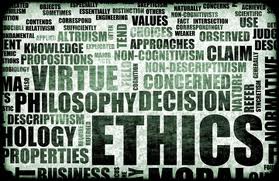Unsatisfied Needs as Motivators for Unethical Behavior
Author: John Cane
It is safe to say that unsatisfied needs differ among individuals and humans have a tendency to rationalize their needs (Ellis, 1975). Is unethical behavior a rational approach for some individuals to be motivated to satisfy unsatisfied needs to maintain their own idea of self-esteem or self-image? The necessity of self-esteem plays a significant role in psychologist Maslow’s hierarchy of needs presented in A Dynamic Theory of Human Motivation, describing self-esteem as one of the basic human drives. Maslow proposed that people need esteem from other people as well as inner self-respect. Both of these needs must be satisfied in order for an individual to grow as a person and achieve self-actualization (Bugental, 1967). James (as cited in Andrews, 1988) referred to self-esteem as, “the ratio of our actualities” (p. 339).
Global sense of self-esteem is gained from appraisals of ability or success in areas of personal importance; those areas in which individuals have aspirations to succeed (Andrews, 1998). Achieving what success at what cost? Self-esteem can involve a variety of beliefs about the self, such as the judgment of one’s appearance, emotions, and behaviors (Braden, 1969). With this judgment can come subjective reasoning of unsatisfied needs to motivate individuals to succeed in whatever area of life a person has an interest in (Baumeister & Exline, 2000). It may be a paradox that unethical behavior can have a troubling effect on one’s self-esteem, all the same, self-image is a high priority for an individual’s sense of empowerment (Diener & Biswas-Diener, 2005).
Self-Esteem
Self-esteem is the extent to which individuals hold positive or negative views about themselves. People with high self-esteem assess themselves positively, trusting they have several pleasing traits and qualities. Persons with low self-esteem think that they possess features that others find unappealing (Braden, 1969). Cognitive consistency theory proposes that when individuals believe they will act in a certain way, they will behave as expected. This permits them to observe their perspective of life as reliable and consistent with their cognitive structures of existence and reality (Graf, 1971).
Researchers have submitted that there is a connection between self-esteem and unethical behavior, grounded in cognitive consistency theory (Aronson & Mettee, 1968). Fitting this theory, unethical behavior is consistent with a self-awareness of low worth. It may be for the reason that these individuals do not believe they can achieve ambitions without cheating, consequently they behave unethically to shine and therefore raise a negative self-perception (Graf, 1971). With these views social psychologists would hypothesize that persons with low self-esteem are more apt to participate in unethical behavior than persons with high self-esteem.
About the Author
For over 15 years, John Cane has helped over 100,000 individuals in areas of Self Improvement. John is a Life Coach, motivational speaker and writer who develops and implements confidence and self-esteem workshops in Baltimore, Florida, Georgia, Illinois, New York, North Carolina, South Carolina, and Virginia. With a background in Psychology, he has six certifications in Personal Growth and Development. His Journal Books, ‘Important Things I Remember from My Parents’ are used in schools and as an aid for adults in gaining strength in self identity in the United States and Europe.
John Cane is the founder of Edge Advantage, Inc. Edge Advantage (www.seetheobvious.com) is a personal development organization dedicated to research-based, practical psychology training. Our focus is on communication, individual performance, and reducing stress. The objective of John’s websites is to bring the most current developments from these areas to those who use them everyday, educating in a form that is clear and practical. John is the webmaster of Self Help Guides Online (.com) and See the Obvious (.com). He is currently pursuing his Graduate Degree in Psychology & Interdisciplinary Inquiry at Saybrook University, Oakland, California. His specialization, Psychology of Creativity Studies focuses on a growth-oriented perspective emphasizing human potential, intended to broaden an in-depth understanding of the everyday creativity every individual possesses.






